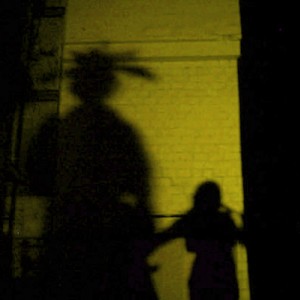 It has been said that “the devil is in the details” but it is equally true that “the devil is in the translation.” David Henry Hwang, the Chinese-American playwright, when visiting China in 2005 saw a translation of “Handicapped Restroom” on a sign reading “Deformed Man’s Toilet.” Not only does the translation matter but so does the context. In assessing the meaning of the shadow it matters whether we are trying to understand the shadow within a P-B or a P-A context. For example let’s consider the following lyrics:
It has been said that “the devil is in the details” but it is equally true that “the devil is in the translation.” David Henry Hwang, the Chinese-American playwright, when visiting China in 2005 saw a translation of “Handicapped Restroom” on a sign reading “Deformed Man’s Toilet.” Not only does the translation matter but so does the context. In assessing the meaning of the shadow it matters whether we are trying to understand the shadow within a P-B or a P-A context. For example let’s consider the following lyrics:
Me and My Shadow
Me and my shadow
Strolling down the avenue,
Me and my shadow,
Not a soul to tell our troubles to…
And when it’s twelve o’clock,
We climb the stair,
We never knock,
For nobody’s there…
Just me and my shadow,
All alone and feelin’ blue…
| Paradigm B (P-B) | Paradigm A (P-A) |
| Cast of characters: “Me” is the false self “Shadow” | Cast of characters: “Me” is the True self “Shadow” |
|
|
However, in the American theatre to be given a “season” where your work is featured by the Signature Theatre is the ultimate accolade. Arthur Miller, Edward Albee, Sam Shepard and August Wilson have all had Signature seasons. Hwang will have his Signature Season this year (2012-2013) with the revival of two of his plays, the “Golden Child” and “The Dance and the Railroad.”Now back to Broadway and one of the most successful playwrights in the history of American theatre. At age 24, while still studying at the Yale Drama School, he won an Obie Award for “F.O.B.” (fresh off the boat). Six years later, he garnered the Tony Award for “M. Butterfly,” followed by both Guggenheim and Rockefeller Foundation awards all spread over a 30-year writing career as a dramatist and screenwriter. If you have seen Disney’s “Aida” (score by Elton John) or “Tarzan” (score by Phil Collins), you have experienced the lyrical and poetic words of David Henry Hwang.
In the highly competitive world of the theatre and especially the theatre in New York, the “capital” of the American dramatic arts, a sense of humor is essential. Luckily Hwang has that in spades and we could say his sense of humor is philosophical. In a recent reading of his latest play “Kung Fu,” which is in development for the 2013-2014 theatre season, the play’s protagonist, Bruce Lee is putting the moves on a young Japanese-American dancer.
“Cannot fight the qi force,” Lee tells her. “Energy. Between man and woman. Very powerful. So must allow the flow, the qi force to—“
Here she interrupts him. “You’re using ancient Chinese philosophy? To get into my pants?”
“Philosophy,” he says, “it should be practical.”
Indeed it should be, but it rarely is, unlike Simple Reality which is nothing if not practical. For example, it is not practical to lack awareness of what the shadow is and how it functions. Let’s see how the shadow has affected the life of Mr. Hwang (as seen from the perspective of P-A of course). As the most famous Asian-American playwright in the history of American theatre he is subject to the projection of the collective shadow of other Chinese-Americans. “Along the way, he was anointed as spokesman, standard-bearer and, unavoidably, lightening rod of sorts among Chinese-Americans, freighted with their expectations, jealousy, anger and pride, sometimes all at once.” Such is the price of success and fame.
Many of us are the objects of both collective and personal shadow projections without being aware of it. We experience the pain but are unaware of why we are suffering. Hwang’s success was the occasion of a shadow projection by his father, in this case a golden shadow projection in which the father sees his own positive shadow in his son. This may sound at first blush to be a good thing but projections are never good for relationships.
Hwang wrote about the projection in his autobiographical play “Rich Relations.” He described the shadow projection as he felt it and understood it without understanding what a shadow projection is. “I think I was mad at my dad when I wrote that play because I felt like we didn’t have a relationship. He didn’t really see me when I was a kid. Once I became successful, he saw my success. But I still don’t know that he saw me.” Shadow projections can make us invisible to one another—one of the many destructive effects of P-B—and they also result in the delusional identities associated with that paradigm.
Hwang will continue his stroll down Broadway with his shadow, climbing the stairs of success or failure as a playwright. Leigh Silverman who is directing Kung Fu said of David, “He lives in an uncomfortable juxtaposition of success and a deep state of anxiety. He’s an incredibly tender person, sensitive, but also tender to the world, which makes him a great writer and a great empath.” Like all of us David Henry Hwang would do well to direct some of that compassion toward himself, including his shadow.
________________________________________________________________
References and notes are available for this essay.
Find a much more in-depth discussion in books by Roy Charles Henry:
Where Am I? The First Great Question Concerning the Nature of Reality
Simple Reality: The Key to Serenity and Survival


